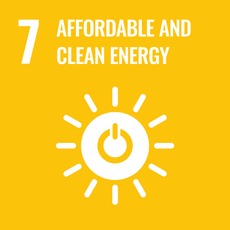Stakeholder Engagement on Nuclear Energy in Australia
- Lenka Kollar

- Nov 17, 2020
- 2 min read
Updated: Jul 18, 2021

Australia is one of the largest exporters of uranium in the world and a key producer of radioisotopes for nuclear medicine. However, nuclear energy is banned in Australia and remains a contentious issue within politics and the public. In 2019, the Parliament of Australia initiated a federal inquiry into nuclear power, with the states of New South Wales and Victoria following on with their own inquiries. These inquiries have sparked renewed interest in the debate on nuclear power in Australia.
Small modular reactors (SMRs) are touted as an ideal option for Australia because of their scalability and flexibility - bringing the ability to work on a dispersed grid and flexible enough to load-follow with renewables. A leading proponent in Australia is SMR Nuclear Technology Pty Ltd (SMR-NT), an independent Australian-owned specialist consulting company that was established to advise on and facilitate the siting, development, and operation of safe nuclear power generation technologies. SMR-NT wants to see SMRs considered as part of Australia's future energy mix to provide clean, reliable, and affordable electricity.
What will it take to overturn the ban on nuclear energy in Australia? The answer is not simple and involves engaging stakeholders at all levels - individuals, communities, organisations, corporations, politicians, and government. True engagement goes beyond educating and informing to truly listening and involving, and most importantly, building trust.
Helixos worked with SMR-NT to develop a proactive stakeholder engagement strategy on nuclear energy in Australia by proposing the utilisation of network analysis tools and leveraging key partners in a variety of forums and methods. A multi-faceted approach will help achieve the main goal of having nuclear energy considered as part of Australia's future energy mix.
Helixos' work with SMR-NT supports the following United Nations Sustainable Development Goals:
More specifically, the following targets:
7.1 By 2030, ensure universal access to affordable, reliable and modern energy services
7.a By 2030, enhance international cooperation to facilitate access to clean energy research and technology, including renewable energy, energy efficiency and advanced and cleaner fossil-fuel technology, and promote investment in energy infrastructure and clean energy technology.
13.2 Integrate climate change measures into national policies, strategies and planning.










